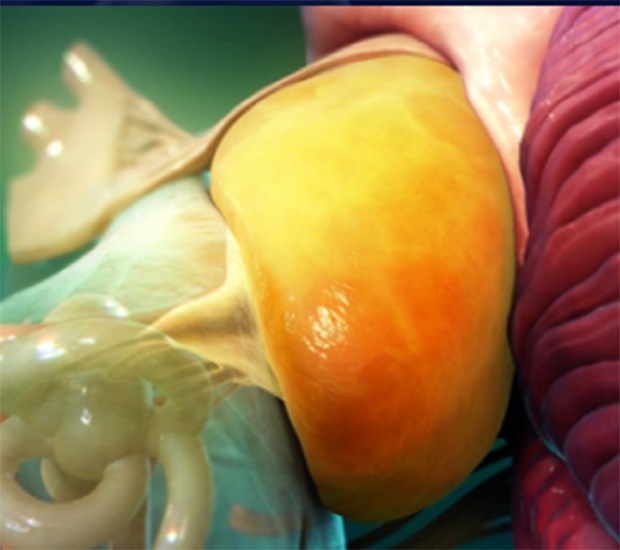Acoustic NeuromaPhoenix, AZ
Patients with acoustic neuroma, also known as vestibular schwannoma, may require careful monitoring by a medical professional. Though these types of tumors are benign and typically slow-growing, they may significantly affect an individual’s day-to-day functioning. Acoustic neuroma treatment may involve monitoring, therapy, and surgery.
Acoustic neuroma treatment is available at Randall Porter, M.D., in Phoenix and the surrounding area. We can help reduce your risk of complications. Call us today at 602-603-8951 to schedule an appointment or learn more about our services.
Understanding Acoustic Neuroma
Acoustic neuroma is a type of tumor that develops on the main nerve, also known as the vestibular nerve. For this reason, it is also known as vestibular schwannoma. Since parts of the vestibular nerve directly influence the patient’s balance and hearing, pressure from an acoustic neuroma may lead to hearing loss, ear ringing, and loss of balance.
These tumors typically arise from the Schwann cells covering the vestibular nerve, and they grow slowly (if they grow at all). On rare occasions, they may grow quickly and become large enough to pressure the brain, interfering with vital functions.
Signs of Acoustic Neuroma
Not everyone with an acoustic neuroma will experience noticeable symptoms, especially if the neuroma is small. Patients who do experience symptoms may also attribute them to typical signs of aging.
For most people, the first symptom is the gradual loss of hearing in one ear, which may also be accompanied by tinnitus. Alternatively, patients may experience a feeling of fullness in the ear. On rare occasions, they may undergo sudden hearing loss. Other symptoms include:
- Confusion
- Difficulty swallowing or hoarseness
- Headaches
- Intermittent loss of sensation in the face
- Problems with balance
- Taste changes
- Vertigo
These signs of acoustic neuroma typically occur gradually and should be addressed by a professional immediately. Clumsiness and mental confusion can be signs of a severe problem requiring urgent treatment.
Causes of Acoustic Neuroma
According to the Mayo Clinic, there is no singular identifiable cause of acoustic neuromas. However, experts believe that it has to do with a malfunctioning gene on chromosome 22. In patients without acoustic neuromas, this gene produces a tumor suppressor protein that prevents the Schwann cells from covering the nerves.
While it is not yet clear what causes this faulty gene, it is also inherited as part of neurofibromatosis type 2 — making it the only confirmed risk factor for acoustic neuroma. Still, neurofibromatosis type 2 is only responsible for about five percent of all acoustic neuroma cases. The disorder is a rare condition that typically involves tumor growth on the balance nerves on both sides of the head, leading to bilateral vestibular schwannomas.
Possible Complications of Acoustic Neuroma
As mentioned earlier, acoustic neuromas can press against the brain stem if enlarged enough. Consequently, it may negatively affect neurological function or even become life-threatening. There are also other risks associated with untreated acoustic neuroma, including:
- Hearing loss
- Loss of sensation in the face
- Loss of muscle control
- Problems with balance
- Ringing in the ear
The above complications may be permanent, making it especially crucial to seek treatment as soon as possible.
Treating Acoustic Neuroma
As established earlier in this article, acoustic neuromas are both non-cancerous and slow-growing. However, this does not mean that treatment is unnecessary — especially when associated with various serious complications. Rather, there are three primary treatment levels for acoustic neuromas: monitoring (also called observation), surgery, and therapy.
Patients with “minor” acoustic neuromas may benefit from monitoring by a medical professional, who can run periodic MRI scans and other tests to ensure that the tumor does not become problematic. Surgery can remove part of or all of the tumor. Other patients may require radiation therapy. Dr. Porter will choose the right treatment depending on each patient’s unique needs, the size of their tumor, the growth (or lack thereof) of the tumor, the patient’s age, the patient’s preexisting conditions, and the severity of the case.
Call Us Today
Untreated acoustic neuromas can derail your life. We at Randall Porter, M.D., can help. Call us today at 602-603-8951 to schedule an appointment or learn more about our services.
Frequently Asked Questions
How frequently will I need to undergo MRIs?
Patients under observation will typically need to undergo their second MRI about six to 12 months after their first MRI. Afterward, they will need to undergo regular MRIs every one to two years, depending on their condition. Patients who have undergone surgery will need to undergo an MRI three months post-operation. Those who have had their tumor removed entirely will typically need an MRI three to five years post-operation.
What should I do after returning home from my surgery?
You should remain active and perform whatever balance exercises as directed by Dr. Porter. This will help your balance system recover. You will also need to return to our office two weeks after the operation for a follow-up appointment. Then, we can talk about scheduling any MRIs.
When can I return to work after acoustic neuroma surgery?
It depends. Patients are typically recommended to plan on taking one month after surgery. However, some require less time, and some require more.
Are acoustic neuromas hereditary?
Not that we know of. However, individuals with parents who have neurofibromatosis type 2 may acquire neurofibromatosis type 2 themselves. In turn, they may also be at risk of developing acoustic neuromas.
How common are acoustic neuromas?
Doctors diagnose 2,000 to 3,000 patients with acoustic neuromas every year, coming out to 1 per 1,000 patients per year. However, these numbers are rising — likely due to advances in MRI scanning that make for more accurate diagnoses.
What is supportive therapy for acoustic neuromas?
Supportive therapies may address any permanent symptoms or complications of an acoustic neuroma, especially when used in conjunction with other treatments. These involve cochlear implants or other treatments to treat hearing loss. Physical therapy, occupational therapy, and balance therapy may also be necessary. Many patients benefit from basic education on their condition and creating or maintaining a strong support system.





